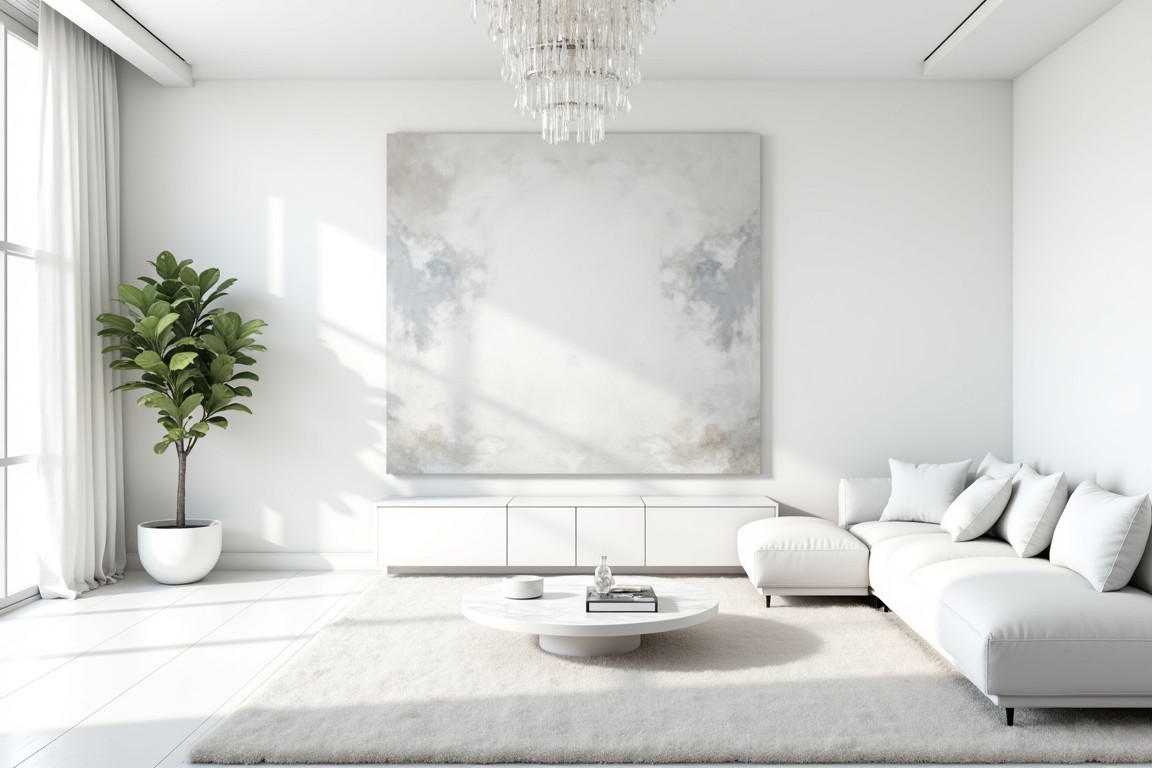White house interiors are a declaration of classic elegance, practicality, and simplicity rather than merely a style decision. Imagine entering a room where every detail has been carefully chosen to create a sense of sophistication and calm, every room is filled with light, and every corner feels spacious.When I went to a friend’s newly remodelled house a few years ago, I was immediately taken aback by the calm elegance of her all-white living room. Not only the colour, but also the way the white background brought out the best in each piece of furniture, artwork, and even the natural light. I was motivated to learn more about white house interiors by that experience, and in this guide, I’ll share everything I’ve discovered, from sustainable practices to design principles, to help you create a space that is both eco-friendly and fashionable.
Why Choose a White House Interior?
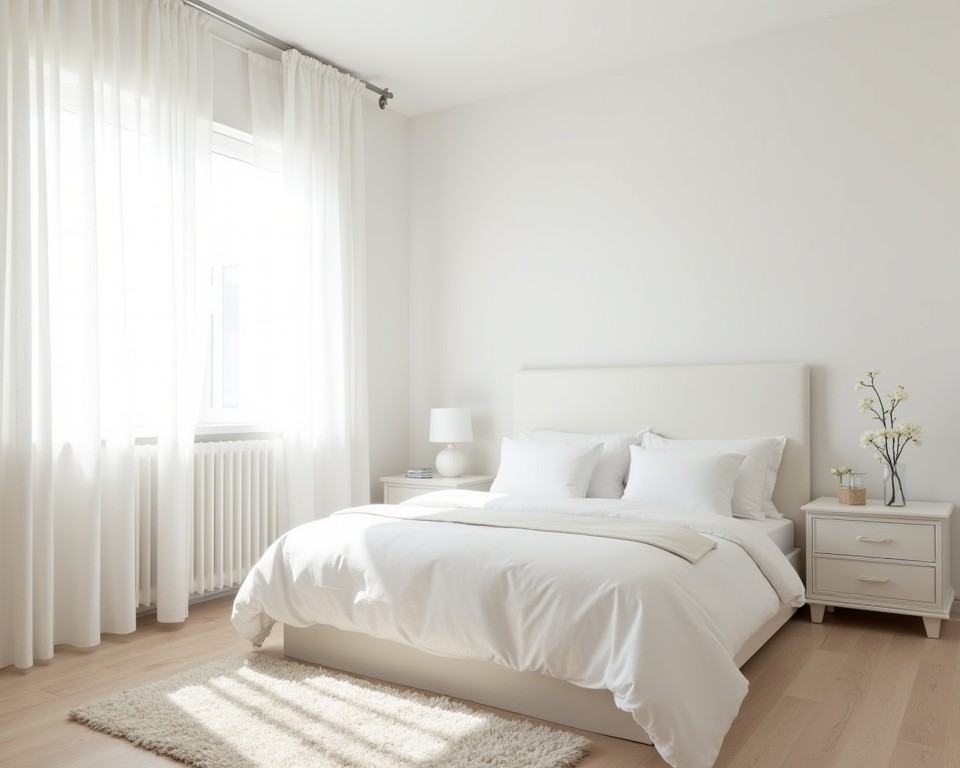
The interior of a white house provides a special fusion of functional and aesthetic advantages:
- Timeless Appeal: White never goes out of style. It’s a classic choice that can adapt to changing trends.
- Versatility: White serves as a blank canvas, making it easy to incorporate different colors, textures, and styles.
- Light and Space: White reflects light, making rooms feel larger and brighter.
- Calm and Serenity: White spaces can create a peaceful, uncluttered atmosphere.
A 2023 Interior Design Trends Report states that because white can accentuate other design elements, 72% of designers suggest using it as a base colour. Beyond aesthetics, however, white interior design can support sustainable living. See our eco-home guide for additional information on eco-friendly design.
Types of White House Interiors
There are many different styles of white interiors, each with its own unique flair:
- Minimalist: Clean lines, uncluttered spaces, and a focus on functionality.
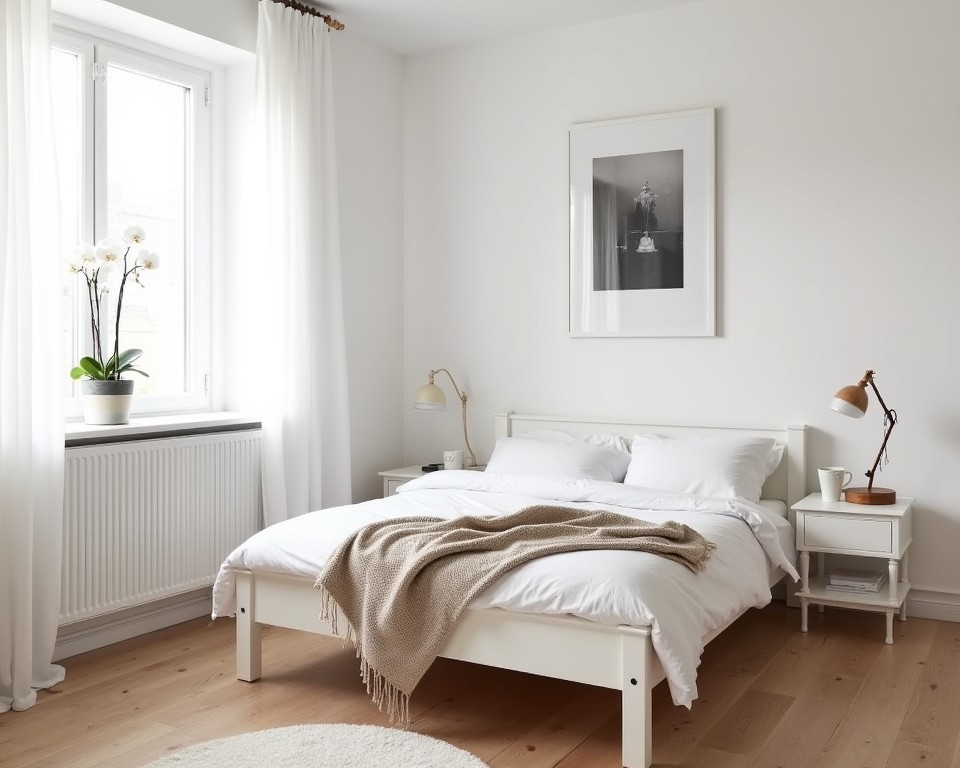
- Scandinavian: Warm woods, cozy textiles, and a hygge vibe.
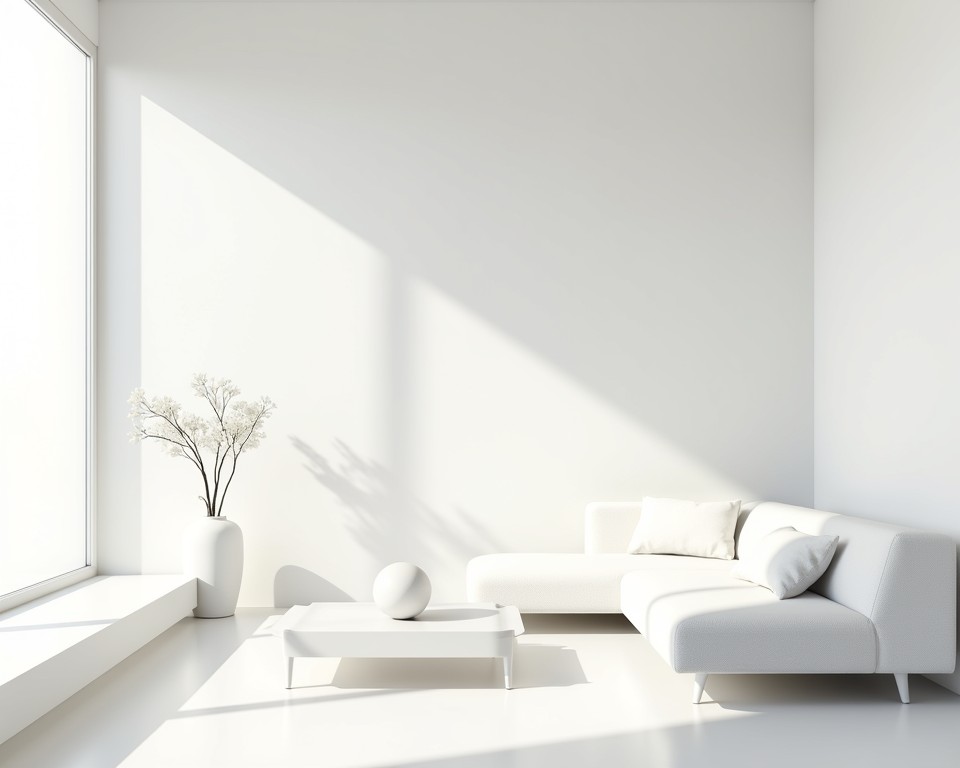
- Modern Farmhouse: Rustic elements like shiplap and vintage decor.
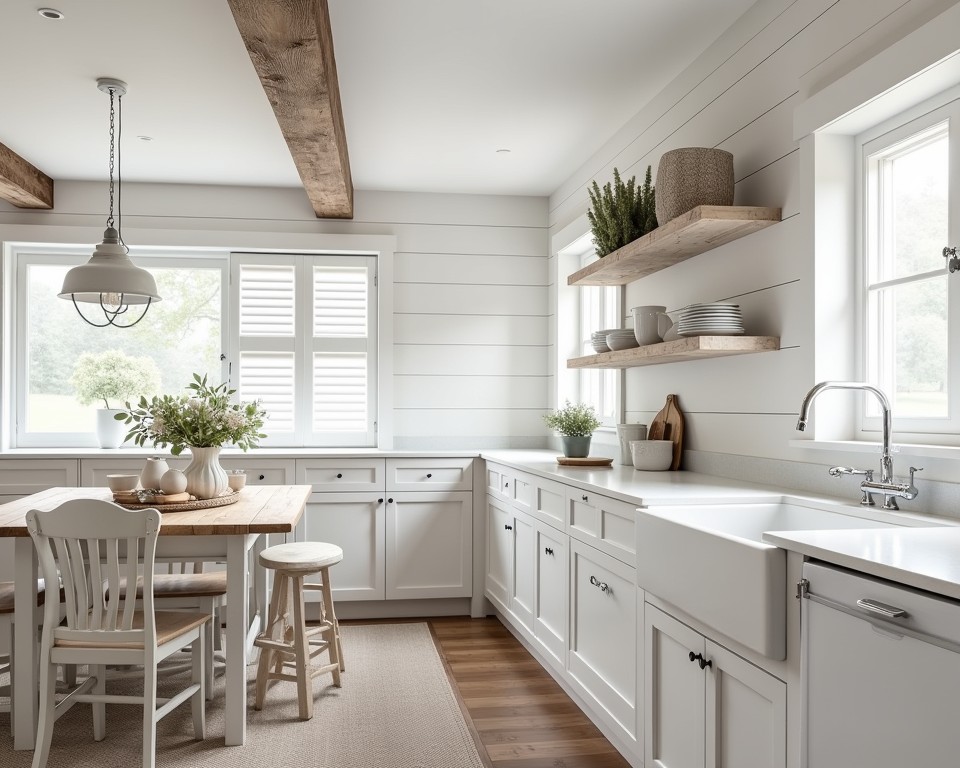
- Coastal: Light, airy, with touches of blue and natural textures.
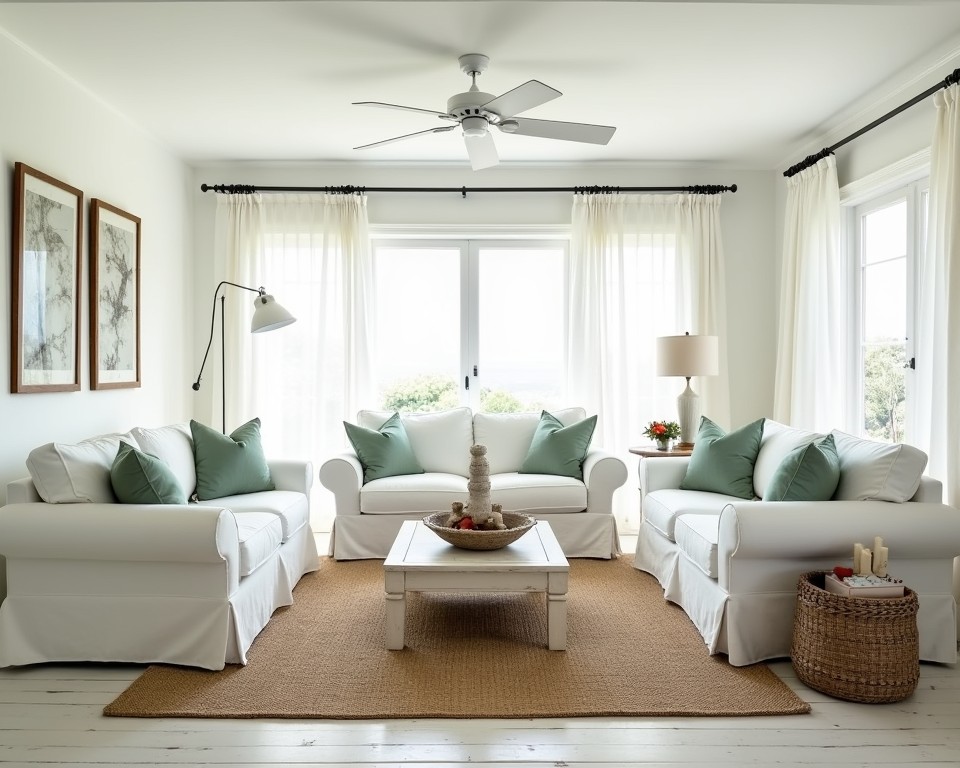
- Classic Elegance: Luxe fabrics, crystal chandeliers, and ornate details.
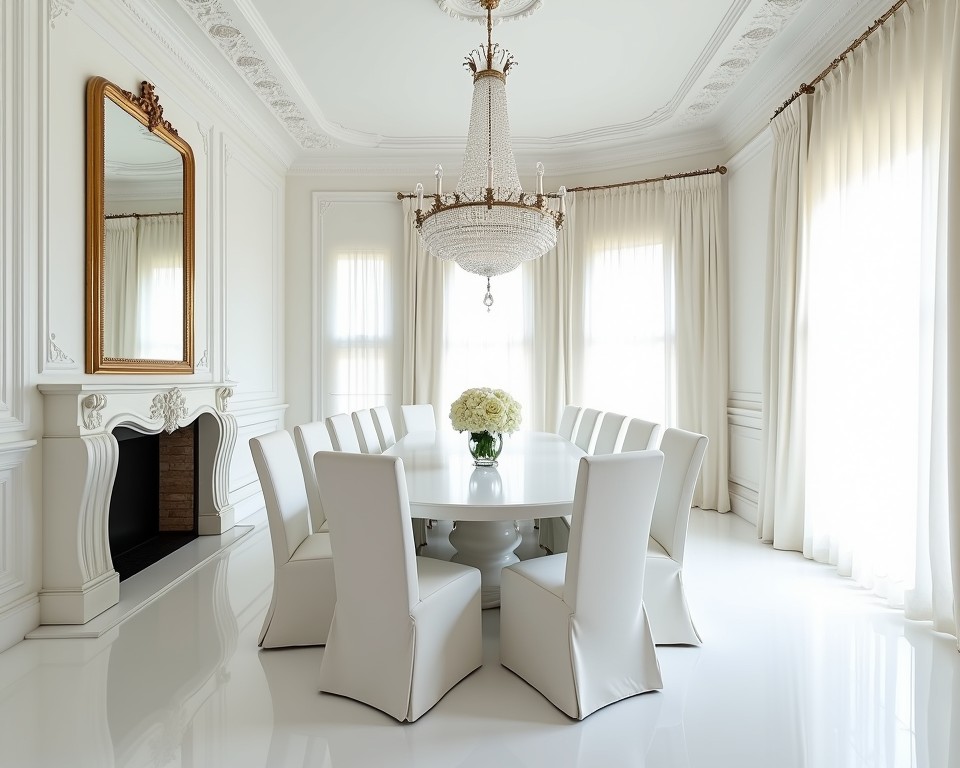
Every style offers a different interpretation of white, so you can customise your room to fit your individuality. Check out our wall decor ideas for additional ideas.
Traditional vs. Sustainable White House Interiors
Let’s contrast conventional and eco-friendly methods for designing white interiors:
| Aspect | Traditional White Interiors | Sustainable White Interiors |
|---|---|---|
| Materials | Often synthetic or non-recycled | Eco-friendly, recycled, or upcycled |
| Environmental Impact | High (waste, emissions) | Low (renewable, biodegradable) |
| Cost | Varies, often cheaper upfront | May be pricier but lasts longer |
| Uniqueness | Common designs | Often one-of-a-kind or handmade |
Although sustainable options may be more expensive at first, they are a smart investment due to their longevity and environmental advantages. Additionally, they provide a distinctive touch that is unmatched by mass-produced items. See our guide to sustainable home materials for additional information on sustainable materials.
Eco-Friendly White House Interior Ideas
Are you prepared to make your white interior green? Here are a few ideas for sustainability:
1. Reclaimed Wood Accents
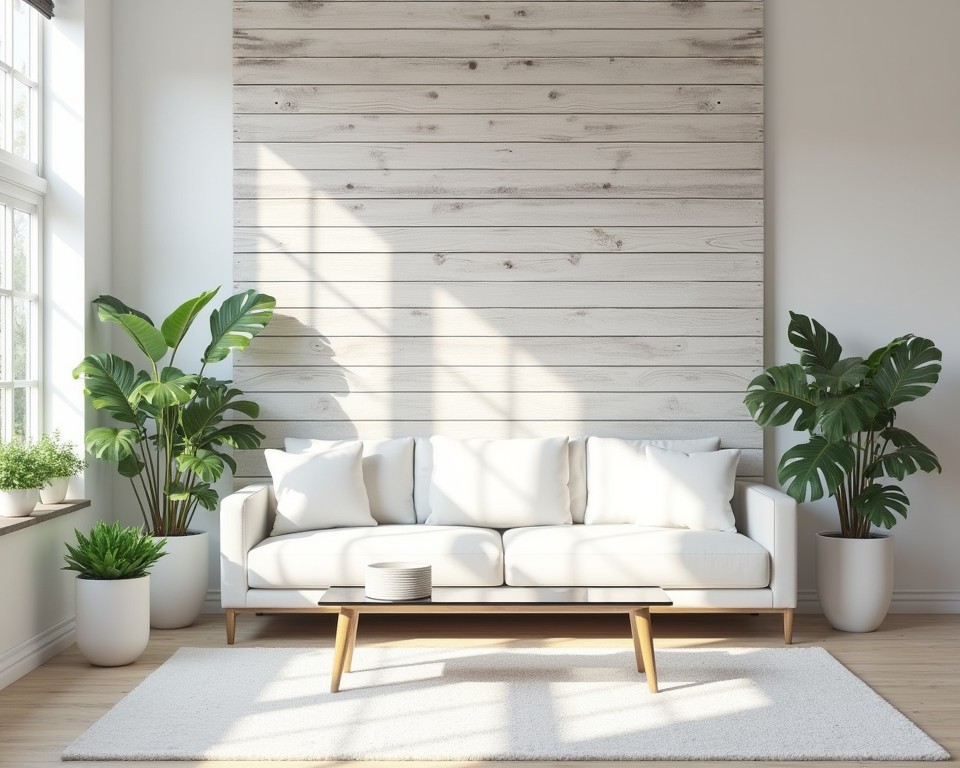
- What It Is: Using salvaged wood for beams, floors, or furniture.
- Why It’s Great: Reduces waste and adds warmth to white spaces.
- Tip: Pair with white walls for a modern farmhouse look.
2. Organic Textiles
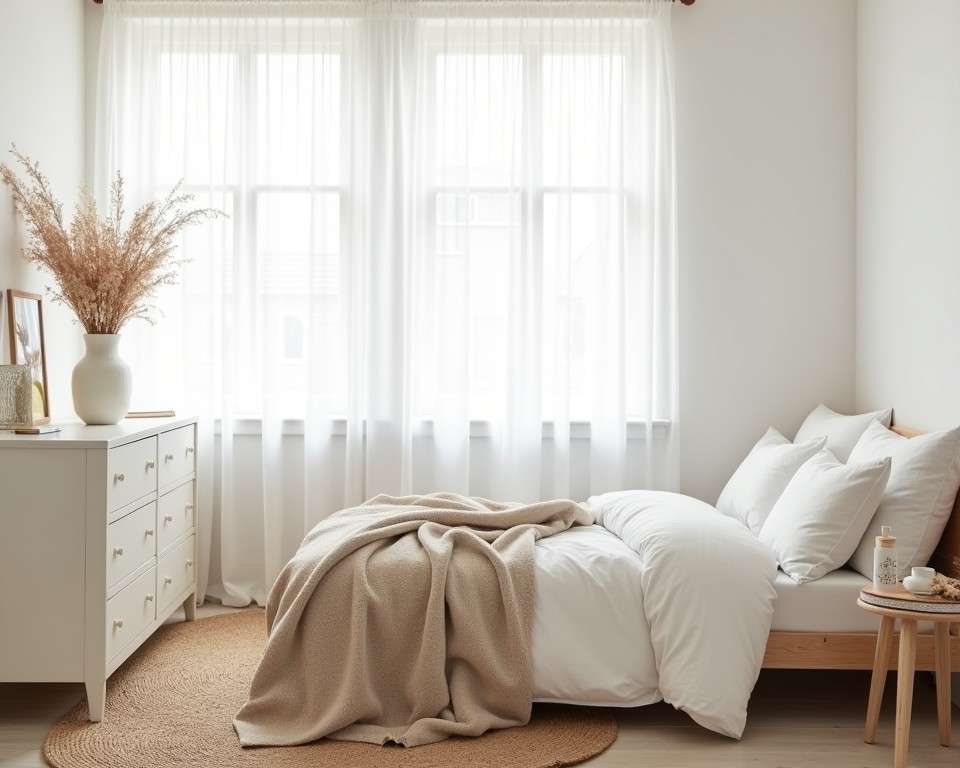
- What It Is: Curtains, rugs, and upholstery made from natural fibers like linen or hemp.
- Why It’s Great: Biodegradable and free from harmful chemicals.
- Tip: Choose undyed fabrics for a pure white palette.
3. Low-VOC Paints
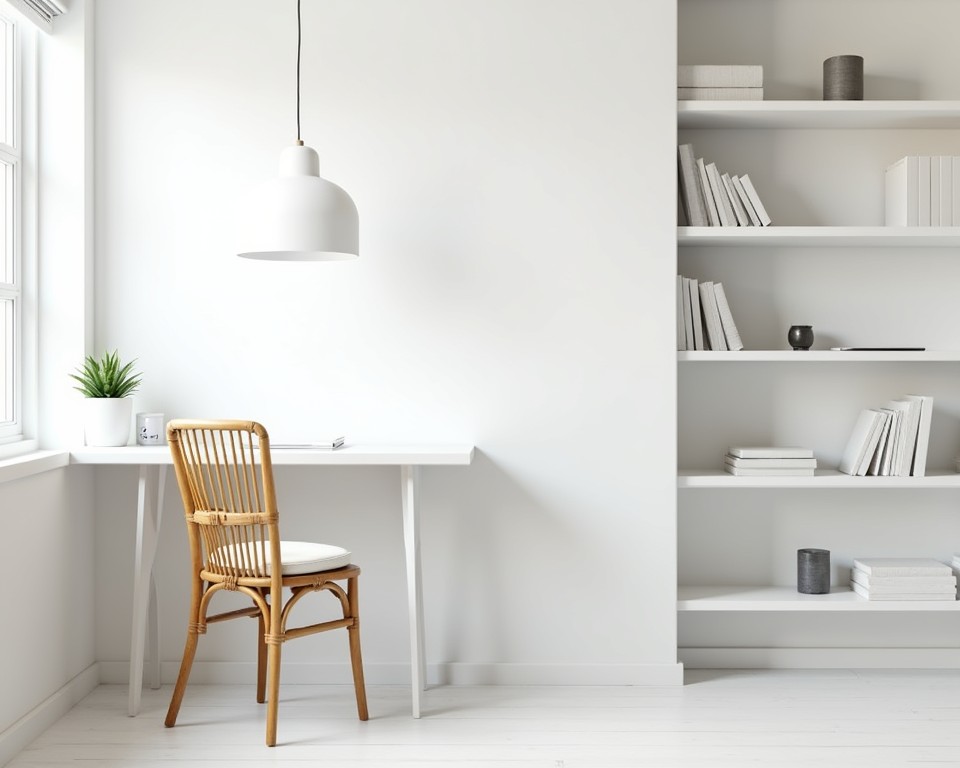
- What It Is: Paints with minimal volatile organic compounds.
- Why It’s Great: Improves indoor air quality.
- Tip: Look for brands like Benjamin Moore’s Eco Spec.
4. Upcycled Furniture
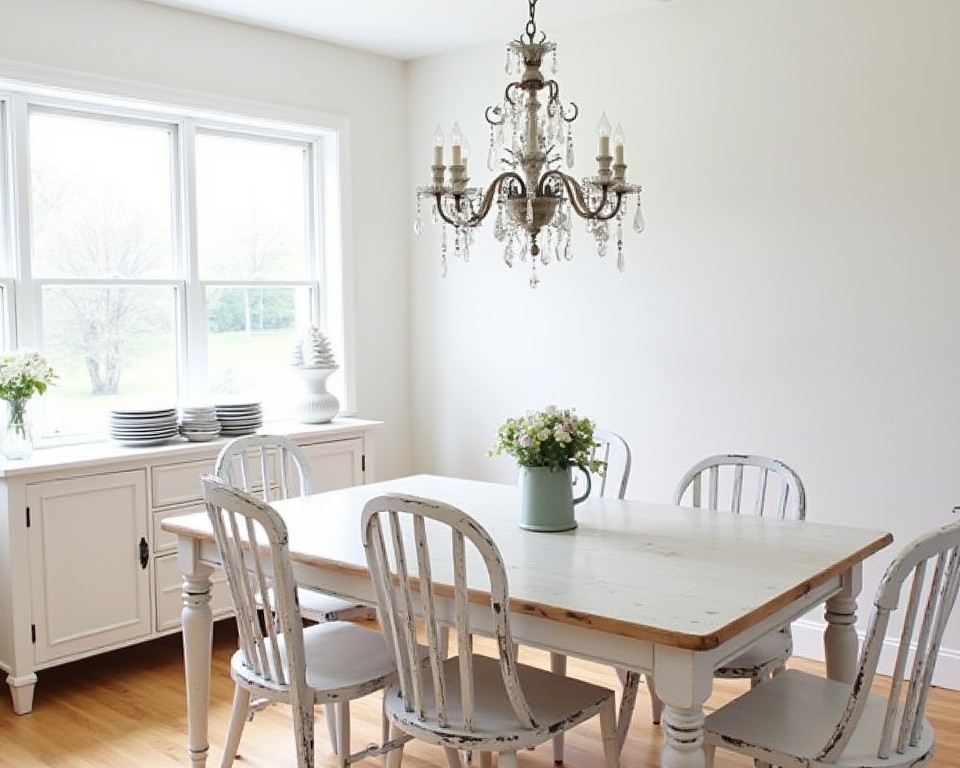
- What It Is: Refurbished or repurposed pieces.
- Why It’s Great: Reduces landfill waste and adds character.
- Tip: Paint old furniture white for a cohesive look.
5. Energy-Efficient Lighting
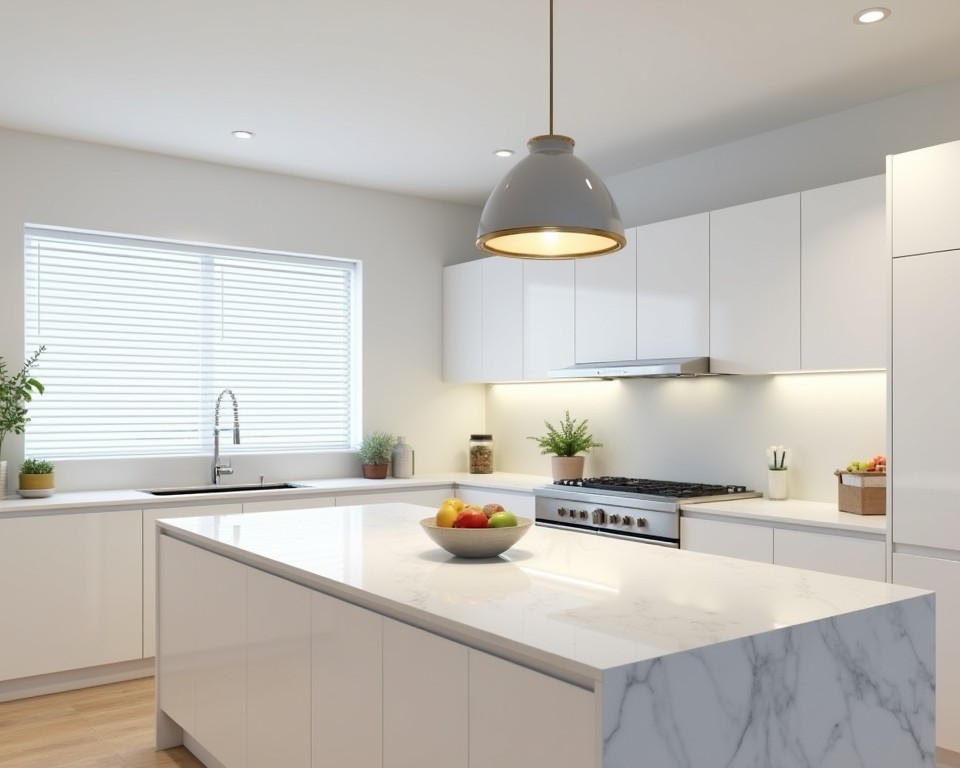
- What It Is: LED bulbs and smart lighting systems.
- Why It’s Great: Reduces energy consumption.
- Tip: Use dimmable LEDs to control ambiance.
These suggestions fit with a zero-waste lifestyle while also improving your white interior. See our zero-waste guide for more information.
DIY White House Interior Projects
Do you want to get your hands dirty? Try these do-it-yourself sustainable projects:
1. Whitewashed Wood Wall
- Materials: Reclaimed wood planks, white paint, brush.
- How-To: Dilute paint with water, brush onto wood, and wipe for a rustic look.
- Why It’s Eco-Friendly: Uses reclaimed materials and low-VOC paint.
2. Macramé Plant Hangers
- Materials: Organic cotton rope, wooden beads.
- How-To: Knot the rope into hangers and add potted plants.
- Why It’s Eco-Friendly: Uses natural, biodegradable materials.
3. Upcycled Mirror Frame
- Materials: Old mirror, reclaimed wood or thrifted frame.
- How-To: Refinish the frame with white paint or stain.
- Why It’s Eco-Friendly: Gives new life to old items.
These projects are enjoyable, economical, and environmentally beneficial. Check out our guide to organic gardening for additional craft ideas.
White House Interiors for Small Spaces
Not enough room? To make white work for you, follow these steps:
- Mirrors: Reflect light and create the illusion of depth.
- Multi-Functional Furniture: Ottomans with storage or fold-out desks.
- Vertical Storage: Tall shelves or wall-mounted cabinets.
Once, a friend made her small apartment feel twice as large by adding white floating shelves and a large mirror. Check out our eco-home guide for additional small-space advice.
White House Interior Trends in 2025
Keep up with these new trends to stay ahead:
- Biophilic Design: Incorporating natural elements like plants and water features.
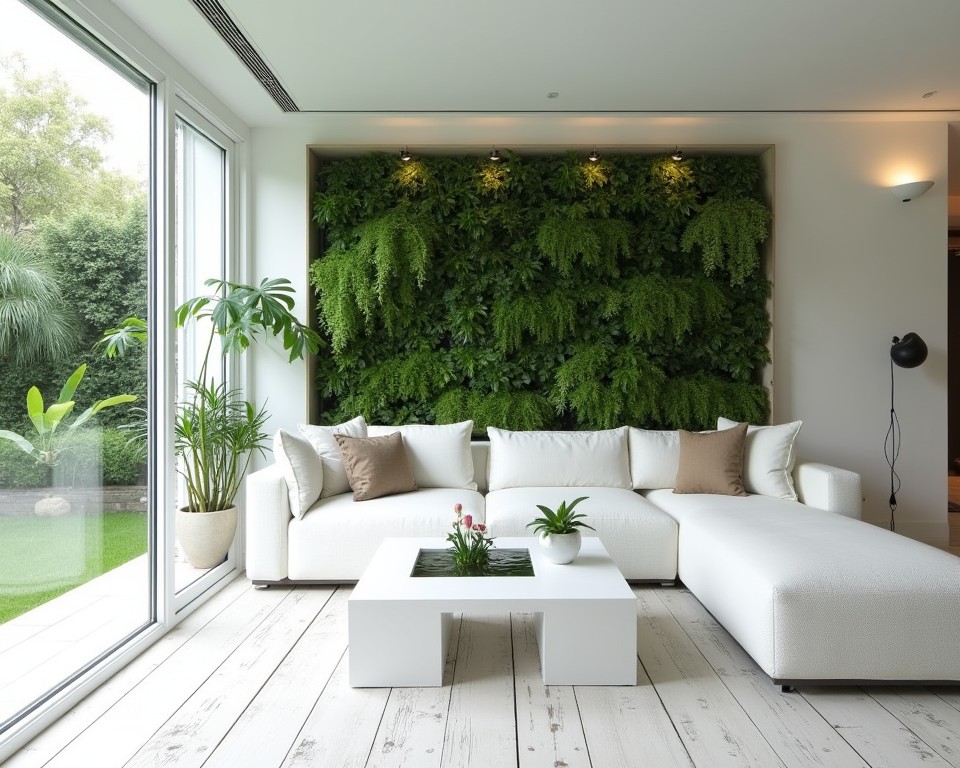
- Textured Walls: Think shiplap, wainscoting, or fabric panels.
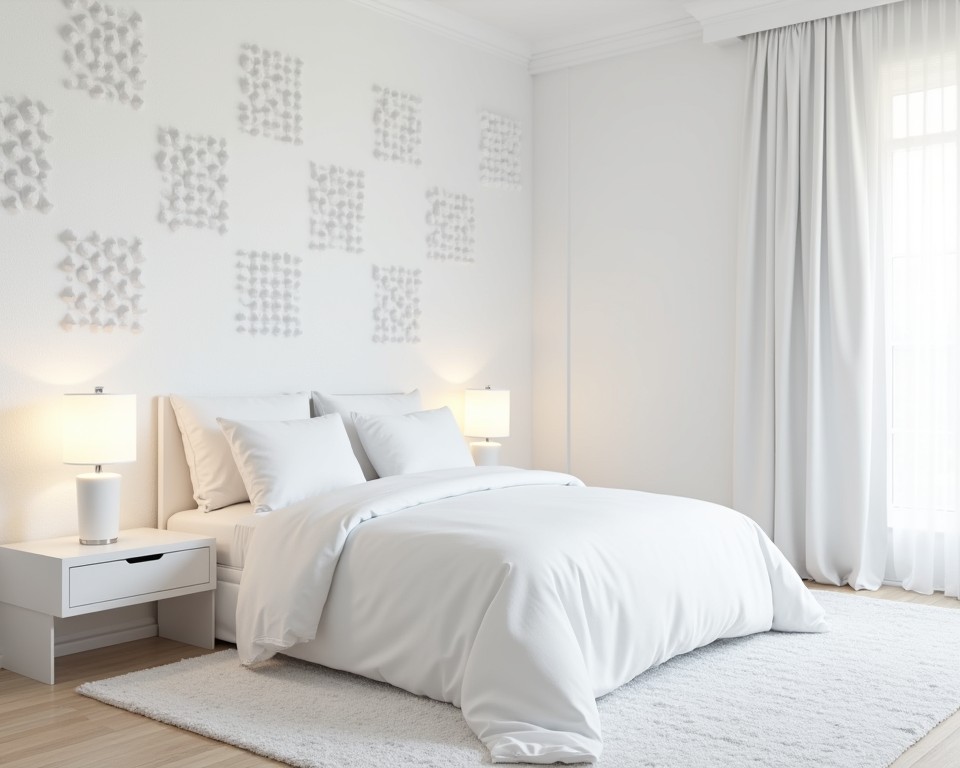
- Sustainable Luxury: High-end, eco-friendly materials like recycled glass or cork.
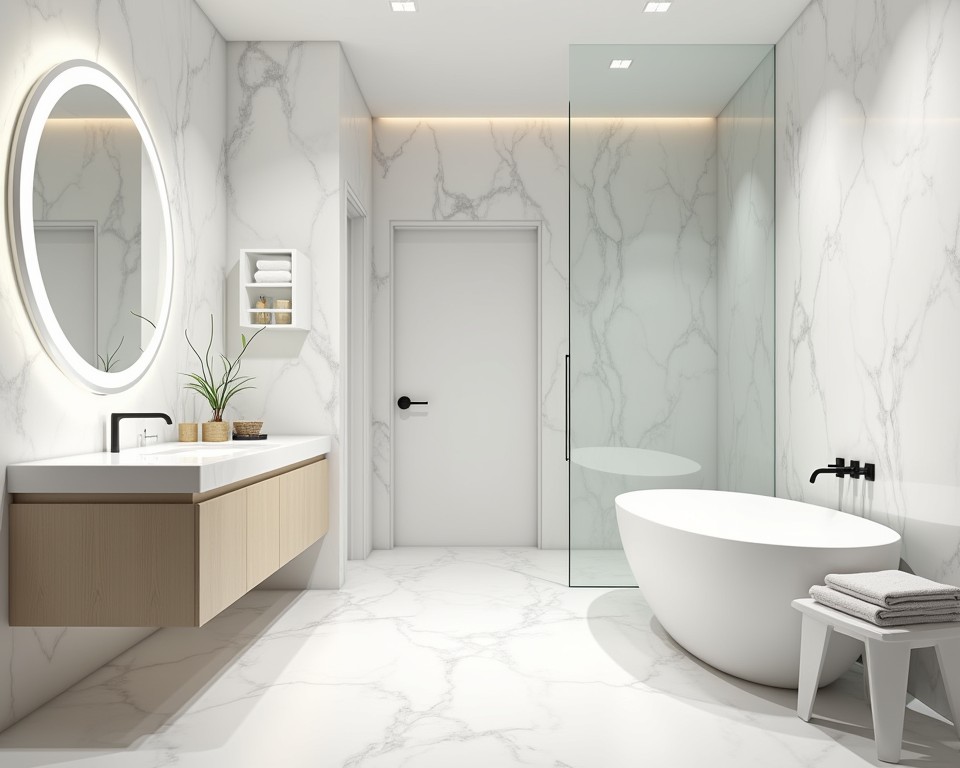
- Smart Home Integration: Voice-controlled lighting and climate systems.
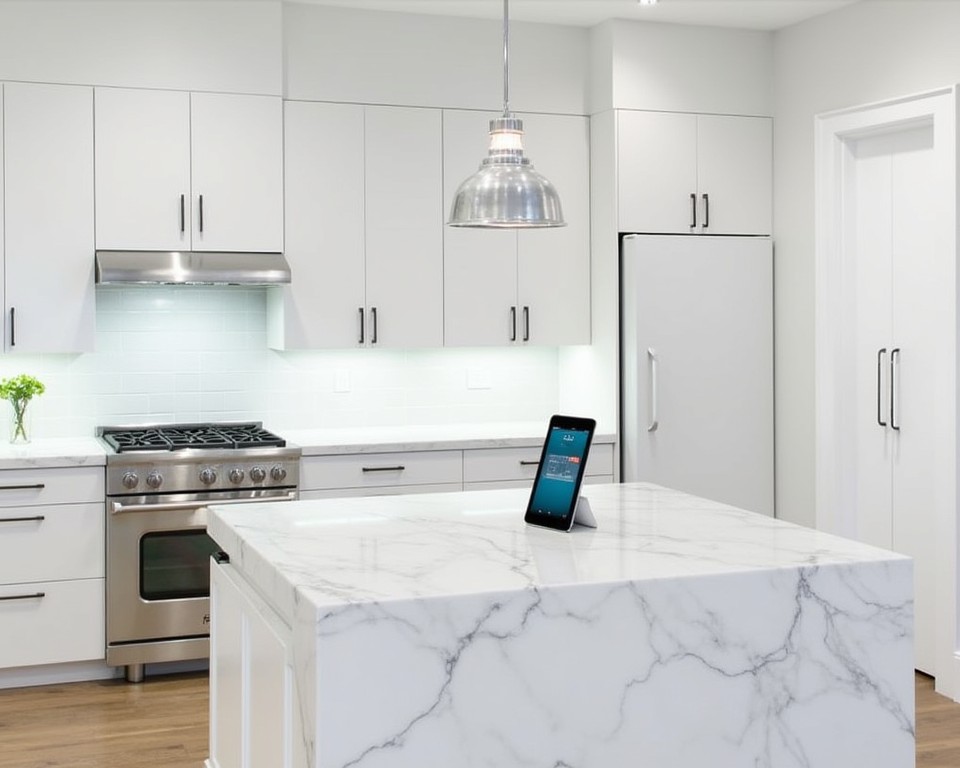
These trends are ideal for the environmentally conscious homeowner because they combine sustainability and style. Visit our lush sustainability guide to learn more.
How to Choose the Right White Paint
Choosing the ideal white can be challenging. This is a guide:
- Consider Undertones: Cool whites have blue or gray hints; warm whites have yellow or red.
- Test Samples: Paint swatches on your wall and observe in different lighting.
- Think About Finish: Matte for a soft look, satin for durability, gloss for drama.
- Go Eco-Friendly: Choose low-VOC or zero-VOC options.
Keep in mind that your space and style will determine the “right” white. Don’t be scared to try new things!
The Impact of Sustainable White House Interiors
Selecting eco-friendly materials for your white interior is more than just a design choice. This is why it’s important:
- Reduces Waste: Upcycled and recycled materials keep items out of landfills.
- Lowers Carbon Footprint: Locally sourced or handmade pieces cut transportation emissions.
- Supports Artisans: Buying from small makers boosts ethical economies.
According to a 2024 Green Living Report, 68% of homeowners favour eco-friendly interior design. This trend is having a significant effect. See our guide to social sustainability for more information on sustainability.
White House Interiors and Mental Health
Your wellbeing may be impacted by the design of your house. White interiors are beneficial in the following ways:
- Promotes Calm: White spaces feel serene and uncluttered.
- Enhances Light: Brighter rooms can boost mood and energy.
- Encourages Mindfulness: A clean, simple space can reduce stress.
When I painted my home office white, I noticed an instant improvement in my level of relaxation and focus. The power of a little paint is astounding.
Budget-Friendly White House Interior Ideas
Decorating doesn’t have to be expensive. Try these cost-effective suggestions:
- Thrift Store Finds: Unique furniture or decor at a fraction of the cost.
- DIY Projects: Create your own art or refinish old pieces.
- Minimalist Approach: Fewer, high-quality items can make a big impact.
- Nature’s Decor: Use branches, stones, or shells for free accents.
These choices are sustainable in addition to being affordable. See our guide to rain gardens for additional cost-effective advice.
White House Interiors for Different Rooms
Every room has different requirements. Here is a brief guide:
- Living Room: Layer textures like wool rugs or linen curtains.
- Bedroom: Use soft whites and natural fibers for a cozy feel.
- Kitchen: Opt for durable, easy-to-clean surfaces.
- Bathroom: Choose moisture-resistant materials and bright lighting.
Your white interior will be both aesthetically pleasing and functional if it is tailored to the room’s purpose.
The Future of White House Interiors
In the future, white interior design will change in tandem with sustainability and technology:
- Smart Materials: Self-cleaning paints or antimicrobial surfaces.
- Biodegradable Furnishings: Furniture made from renewable resources.
- AR Design Tools: Virtual reality to preview your space before committing.
These developments improve the eco-friendliness and functionality of white interior design. Check out our guide to sustainable home materials for more upcoming trends.
Conclusion
More than just a fad, a white house interior is a classic, adaptable option that can turn your area into a haven of sustainability and style. The options are endless, ranging from eco-friendly paints to accents made of reclaimed wood. Remember that your house should represent you, regardless of your level of experience with design. What will your white interior say, then?
Are you prepared to begin your metamorphosis? Start small by painting a wall, adding a plant, or telling a friend about this post. Check out our guide to eco-friendly decor for additional ideas. Let’s design areas that are both aesthetically pleasing and environmentally friendly.
FAQ
What is the best white paint for interiors?
It depends on your style. For a warm look, try Benjamin Moore’s “Simply White.” For a cool tone, go with Sherwin-Williams’ “Pure White.”
How can I make my white interior sustainable?
Use eco-friendly materials like reclaimed wood, organic textiles, and low-VOC paints. Upcycle furniture and choose energy-efficient lighting.
Are white interiors hard to maintain?
Not necessarily. Use washable paints and durable fabrics. Regular cleaning and mindful decor choices can keep your space looking fresh.
How does a white interior affect mental health?
White spaces can promote calm, reduce stress, and enhance focus by creating a serene, uncluttered environment.

